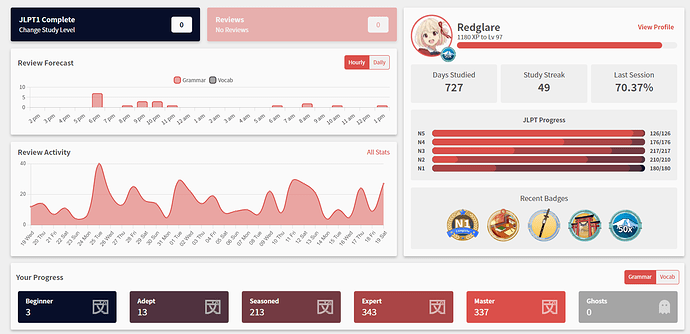Happy to answer your question! The short answer would be “no”.
Here’s the long answer:
In my experience, both resources definitely help a lot along the way with recognizing kanji and grammar patterns, but in the end, the only way to practice reading books is by actually reading native material.
Same with anime, you’ll have to practice your listening skill to pick up what they’re saying and for that I’d recommend listening to podcasts or just jump straight into watching anime. Preferably without Eng subs. There’s a lot of content on youtube you can listen to/watch in order to practice listening.
The main trouble is vocab. That goes for both reading and listening. While there are quite a few kanji and grammar structures, there are only so many of them that are used frequently, so as you progress in your studies, vocab will become the main bottleneck. For example 2000-3000 common kanji vs. 10 000++ words. Also depends on the genre. You can “master” the vocab in one genre for example by reading a ton of Slice of Life and you’ll feel like you know most of the words, but as soon as you switch to fantasy or something else, it’ll almost feel like you’re back to scratch (tbh I don’t know if that’s an exaggeration or not).
You might think finishing Wanikani is going to leave you prepared, but it’s not like WK has all the kanji and much less the vocab required to read novels with ease. As you probably know, WK is not meant to teach the most frequently used words and barely has any kana words (can only think of テーブル and ベッド at the moment), and even if it is great for studying kanji, it does not include all the readings. Be prepared to become best friends with a dictionary (jisho, takoboto or better yet: yomichan). You might want to pick up an SRS resource for practicing vocab. I’ve used koohi.cafe which was great (type the reading/meaning) and now I mainly use jpdb (anki-style rate your own knowledge).
In addition to WaniKani, BunPro, koohi and jpdb, I’ve used a few textbooks along the way, starting with Genki I & II, then AIAIJ and SKM N2 for grammar and reading. I think I was in the middle of Genki II when I started reading my first manga in Japanese: Haikyuu, a series I was quite familiar with already. I read quite a few volumes of that plus a few random volumes of other manga series before I started reading novels. I read the novels Hyouka and SAO 1, but finished Hyouka first because it’s much shorter and I read it with the book club on WK forums (I wouldn’t recommend reading mystery as your first book unless you’re very familiar with it, I wasn’t xD ). Can definitely recommend joining a book club though!
I don’t think there’s any way around it. If you don’t have much reading experience, the first book is always going to be slow and test all your patience. As you get acquainted with the vocab within a single book, you’ll read the book a bit faster towards the end of it. That’s why it is recommended to follow a series as a beginner since an author usually will stick with much of the same vocabulary within a series. The second book will also be tough, but with the third and fourth book you’ll get rolling. Following one series is almost like a self-contained SRS in a way. Best tip is to read what you want to read and especially something you’re already familiar with.
TL;DR
WaniKani and BunPro only goes so far to help with reading and even less with watching anime imo. Main bottleneck as you get kanji and grammar down is vocab, so you might want to use an SRS for learning vocab. Textbooks and other resources can help, but is not a must for reading skills. Reading takes time, pick a series to get familiar with vocab rather than jumping between random books. You get another advantage by reading something you’re familiar with.
Hope that answers your question!  Feel free to ask more if anything is unclear.
Feel free to ask more if anything is unclear.
 Now I’m curious how long it’ll take me until all the grammar is mastered
Now I’m curious how long it’ll take me until all the grammar is mastered 
 Probably a few more years xD
Probably a few more years xD
 I still have N5 grammar I haven’t mastered yet.
I still have N5 grammar I haven’t mastered yet.![]()
 Went there for two weeks in 2018.
Went there for two weeks in 2018.![]()










 There’s absolutely hope for you too! Just keep chugging along and you’ll get there someday
There’s absolutely hope for you too! Just keep chugging along and you’ll get there someday 
